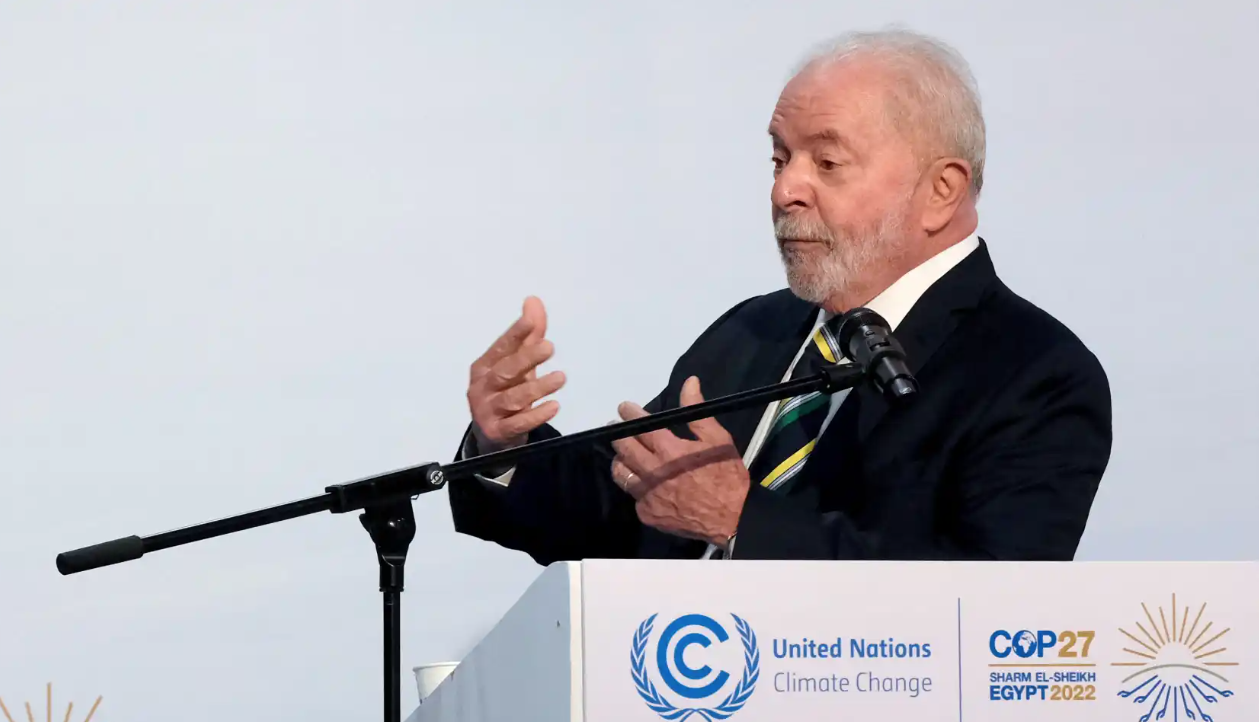Coauthor Atos Dias
The Brazilian government has proposed to hold an Amazon Summit in August 2023, in Belém, within the framework of the Amazon Cooperation Treaty Organization (ACTO). The objective is to bring together Bolivia, Colombia, Ecuador, Guyana, French Guiana, Peru, Suriname, and Venezuela to discuss general actions related to the rainforest and, in particular, the environmental issue. The Amazon Summit could be the first international meeting in which Lula, as host, will propose the general frameworks for the environmental debate. If he wants to be consistent with the position he defended at COP27, his government must link the fight against hunger to the climate issue. However, it is important for Brazil to bring agroecology to the forefront, an issue absent from his speech at COP27, the most important climate-related meeting Lula has attended since he won the elections last year.
At COP 27, the government of then-President Bolsonaro was represented by Environment Minister Joaquim Leite. In his speech, he acknowledged that the country has climate challenges, including in relation to illegal deforestation in the Amazon. However, the minister criticized “previous governments” that “only acted to fine, reduce and blame” and advocated a profitable environmental policy for “companies, people and nature”. The exploitation of nature for economic purposes was therefore a central theme in his address to COP 27.
This position should be interpreted in the context of Jair Bolsonaro’s government, which was characterized by turning a blind eye – to say the least – to illegal economic activities of exploitation of the Amazon, including in protected indigenous reserves, with emphasis on illegal mining activity and the disorganized advance of agribusiness. Considering the records of the devastation of the forest area, the country moved away from the commitments signed at COP 26 in Glasgow.
Lula’s participation in COP 27 was made possible by a direct invitation from Egyptian President Abdel Fatah Al-Sisi. In his speech, Lula stressed the importance of a joint effort, in the field of global governance, to comply with the agreements already signed on mitigating the effects of climate change. The president-elect affirmed that “the agreements that have already been finalized have to come to fruition” and highlighted the agenda for the creation of a financing fund for developing countries, especially the poorest, to “face the consequences of a problem largely created by the richest countries, but which disproportionately affects the most vulnerable”.
Lula also emphasized the issue of hunger, stressing that the country needed to “reconnect with the world and help again to fight hunger.” In addition, Lula advocated the creation of a global alliance for food security “for the end of hunger and the reduction of inequalities, with full climate responsibility”. Finally, he argued that it is possible to increase agricultural production without deforestation and even highlighted the importance of more sustainable agricultural practices, referring to agroforestry and the agricultural knowledge of native peoples and local communities.
Lula’s speech, in addition to clearly addressing the problem of hunger, dealt with the food issue in a way related to the climate agenda. That is, it was recognized that agricultural production was also among the causes of climate change and that it would be necessary to seek “regenerative and sustainable agriculture”. Although this was not an official speech by a head of state, Lula’s message was close to the broader agenda proposed by the Koronivia group and the World Health Organization at COP27. It was an indication that Lula, as president, could be a protagonist in trying to strengthen the agricultural and food intersections in climate change discussions.
However, it is essential to note that Lula brought the terms “regenerative and sustainable agriculture” into his speech and that he did not mention terms such as agroecology, food systems, and food sovereignty. These presences and absences are relevant in light of the principled disputes over the best solutions to address the challenges inherent in the nexus of food production, hunger, and climate.
According to the IPES Food report, terms such as “regenerative agriculture” and “nature-based solutions”, which operate in the sustainability paradigm, are linked to corporate interests and, eventually, to “corporate greenwashing” practices. In other terms, in international negotiation arenas, there is tension between these terms and, mainly, agroecology, which seems to take precedence over the others.
The same report noted that “agroecology focuses on both human and natural systems. Its pursuit of environmental restoration and sustainability is inseparable from the pursuit of social inclusion, equity, or justice.” In contrast, “definitions of regenerative agriculture and nature-based solutions tend to be narrower in scope, referring primarily to natural systems and technical practices, emphasizing environmental restoration, preservation, and sustainability in ways that downplay human dimensions and socio-technical relations.”
Although the president-elect’s speech at COP 27 had encouraging aspects compared to Bolsonaro’s official speech, it will be necessary to monitor whether this orientation of Lula’s government will maintain, in practice, the conceptual link between the fight against hunger and environmental preservation. The Amazon Summit may be the first important meeting where Brazil, as host, can provide this connection as a fundamental starting point for negotiations.
Furthermore, for agroecology to be strengthened as a fundamental principle of public policies and cooperation agreements, it must gain relevance in the international environmental agenda. And the Amazon Summit is a privileged opportunity for this. In fact, the current government has been reversing the Bolsonaro government’s disdain for agroecology and farmers and, specifically, has reactivated policies and provided more budget for agroecology. The government needs to give greater relevance to this issue in its foreign policy.
Atos Dias is a researcher at the Research Group on Hunger and International Relations (FomeRI).
*This text is the result of research supported by the Heinrich Böll Foundation.
Translated from Spanish by Janaína Ruviaro da Silva











